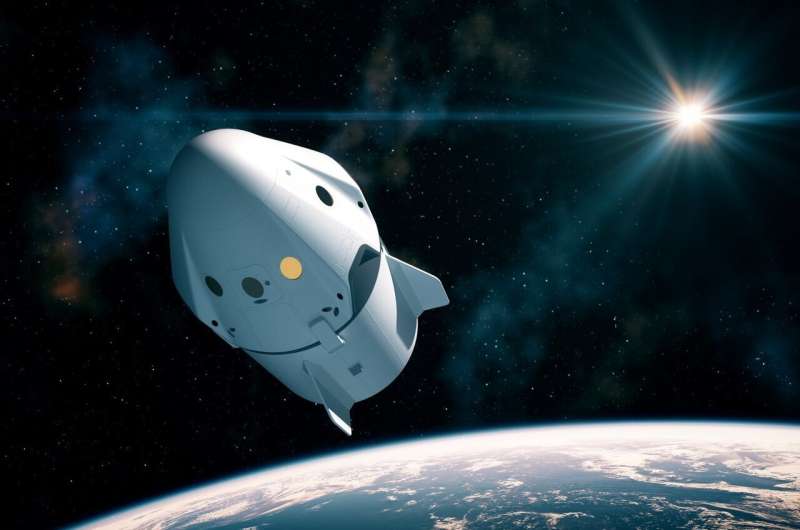Researchers said the mission provided important insights about the body's earliest response to these stressors.
Some noteworthy findings:
- Two of the four citizen-astronauts had motion sickness.
- Effects of spaceflight on heart function and mental performance varied from person to person but were modest in all cases.
- Changes in immunity to viruses dovetailed with findings from other space missions.
- Biological analyses of various bodily systems found "a broad set of molecular changes."
In short, the mission demonstrated that private astronauts can do meaningful scientific research in orbit with minimal risk.
But it also underscored the need for developing tools to monitor their health and performance in future missions.
"The data and biosamples represent the first of, hopefully, many commercial spaceflight missions to come," said co-author Jimmy Wu, deputy director of TRISH.
The findings are based on data and biological samples collected before, during and after the mission—and they demonstrated the effectiveness of various information-gathering tools that require little or no training to deploy.
For example, the astronauts used a hand-held ultrasound device to obtain images of the bladder, jugular vein and the eyes. Smartwatch data, skin swabs and biopsies, saliva testing, as well as tests of memory and thinking skills as well as sensory and nervous system function were also evaluated.
"Frequent space travel is on the horizon and more commercial spaceflight participants are eager to venture forward," said co-author Dorit Donoviel, executive director of TRISH. "We must plan appropriately and ensure scientific research in space is performed as accurately and safely for everyone."
The findings were published June 11 in the journal Nature.
More information: C. W. Jones et al, Molecular and physiologic changes in the SpaceX Inspiration4 civilian crew, Nature (2024). DOI: 10.1038/s41586-024-07648-x
There's more about the research into the health effects of space travel at the Translational Research Institute for Space Health.
Journal information:Nature
© 2024 HealthDay. All rights reserved.



